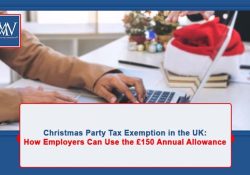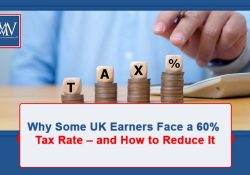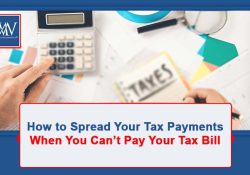Child Benefit charge
The receipt of Child Benefit can result in a tax bill. This potential bill brings the Child Benefit into the scope of self assessment and, if you live in the Harrow area we, at Makesworth Accountants, can advise you on the potential application of the Child Benefit Charge and possible tax planning that may be appropriate to remove the Child Benefit Charge.
The High Income Child Benefit charge applies to a taxpayer who has income over £50,000 in a tax year where either they or their partner, if they have one, are in receipt of Child Benefit for the year.
We set out below the main points of the charge and illustrate some of the practical issues.
Does this affect my family?
The High Income Child Benefit charge is payable by a taxpayer who has ‘adjusted net income’ (explained later) in excess of £50,000 where either they or their partner, if they have one, are in receipt of Child Benefit. Where there is a partner and both partners have adjusted net income in excess of £50,000 the charge will applies to the partner with the higher income.
Practical issues
Some couples with fluctuating income levels may find that they are caught by the charge or perhaps that the partner who usually has the highest income does not actually end up paying the charge as the following example illustrates.
Example
Nicola, who receives Child Benefit, is employed as a teacher and earns £52,000 a year. Her husband Alan is a self- employed solicitor and his accounting year end is 31 March. He is late in submitting his books and records to his accountant for the year ended 31 March 2018. His results for that year will form his taxable profit for 2017/18. Nicola and Alan do not have any other income other than their earned income but his profits are generally in excess of £60,000. On this basis Nicola assumes that Alan will be liable for the charge.
In January 2019 Alan’s accountant completes his tax return, files this in advance of the 31 January deadline and advises that his profit has reduced to £48,000 as he had experienced a number of bad debts.
As a result Nicola has the highest income for 2017/18 and is therefore responsible for paying the charge by 31 January 2019 and she will need to contact HMRC about this.
For couples who do not share their financial details there is a problem as it is difficult to accurately complete their tax return (or know if they need to contact HMRC to request one) if their own income is over £50,000 and Child Benefit is being claimed. Only the highest earning partner is liable so this will need to be determined.
Changes in circumstances
As the charge is by reference to weeks, the charge will only apply to those weeks of the tax year for which the partnership exists. If a couple breaks up, the partner with the highest income will only be liable for the period from 6 April to the week in which the break up occurs.
Conversely, if a couple comes together and Child Benefit is already being paid, the partner with the highest income will only be liable to the charge for those weeks from the date the couple start living together until the end of the tax year.
So what is the adjusted net income of £50,000 made up of?
It can be seen that the rules revolve around ‘adjusted net income’, which is broadly:
- income (total income subject to income tax less specified deductions e.g. trading losses and payments made gross to pension schemes)
- reduced by grossed up Gift Aid donations to charity and pension contributions which have received tax relief at source.
In some cases it may be that an individual may want to donate more to charity or make additional pension contributions: for example, to reduce or avoid the charge.
Inequity applies as household income is not taken into account.
Therefore, equalising income for those who have the flexibility to do so such as in family partnerships or family owner managed businesses is important.
Who is a partner for the purpose of the charge?
A person is a partner of another person at any time if any of the following conditions are met at that time. The persons are either:
a man and a woman who are married to each other and not separated; or
a man and a woman who are not married to each other but are living together as husband and wife.
Similar rules apply to same sex couples.
The charge
An income tax charge will apply at a rate of 1% of the full Child Benefit award for each £100 of income between £50,000 and £60,000. The charge on taxpayers with income above £60,000 will be equal to the amount of Child Benefit paid.
Example for 2017/8
The Child Benefit for two children amounts to £1,788 per annum. The taxpayer’s adjusted net income is £55,000. The income tax charge will be £894. This is calculated as £1,788 x 50% (£55,000 – £50,000 = £5,000/£100 x 1%).
How does the administration operate?
In the self assessment system individuals are required to notify HMRC if they have a liability to income tax, capital gains tax (CGT) and the High Income Child Benefit Charge by 6 October following the tax year. This requirement is amended to include situations where the person is liable to the Child Benefit charge.
In addition, the charge is included in PAYE regulations so that it can be collected through PAYE, using a reduced tax code. It is also included in the definition of tax liability, so that it could potentially affect payments on account and balancing payments.
So should you continue to claim Child Benefit?
It is important to appreciate that Child Benefit itself is not liable to tax and the amount that can be claimed is therefore unaffected by the charge. It can therefore continue to be paid in full to the claimant even if they or their partner have a liability to the charge.
On the other hand Child Benefit claimants are able to elect not to receive the Child Benefit to which they are entitled if they or their partner do not wish to pay the charge. However, this will not affect the credit available (for state pension purposes) to certain people who stay at home to look after children (provided that an initial claim for child benefit was made when the child was born).
An election can be revoked if a person’s circumstances change.
But I don’t receive a tax return?
It may well be that you and/or your partner have not received a tax return before but this may need to change. You need to tell HMRC by 6 October following the end of the tax year if you think a charge may be due.
Guidance
HMRC have issued some guidance on the charge and the options available which can be found here. This should be essential reading for many families.
How we can help
Need Accountancy Support?
For information on bespoke training, or if you have any other questions for Makesworth Accountants, please fill in your details below


















 151
151